2023
Sampling the conformational space of modified macrocyclic peptides by eNOES: models for cell permeability
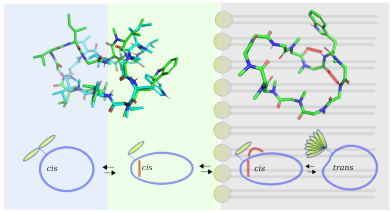
Together with the group of Prof. Künzler and Prof. Güntert we propose a model for cell-permeation of modified macrocyclic peptides. The model is based on NMR structures which were obtained using a novel eNOE approach in various solvent mixtures. The solvent mixtures mimic various cellular compartments.
Facility tours at Scientifica
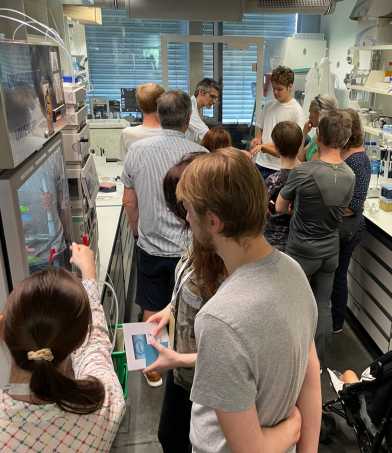
At this year's Scientifica, we showed the molecular biology labs and the NMR facility to the public. We enjoyed the experience and had many nice discussions with interested visitors.
Quantifying high affinities by NMR
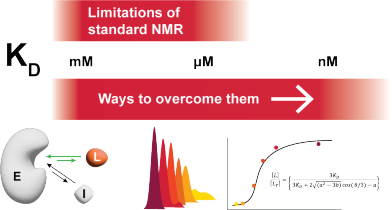
Together with Claudio Dalvit we explored the limitations of NMR for determining the affinity of strong ligands. Read our learnings in a detailed review just published in Progress in NMR Spectroscopy.
1D heteronuclear detection experiments join the DOTETH library
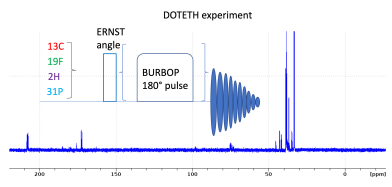
A new set of 1D experiments for heteronuclear 13C, 2H, 19F, 15N, and 31P detection have been added to our growing DOTETH library.
Modular Oxime formation: collaboration with J. Piel group published
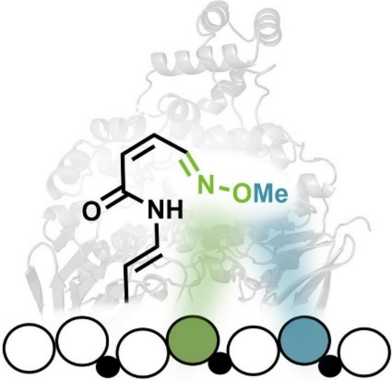
Benzolactone enamides, a number of which incorporate a methylated oxime moiety, are produced by a range of organisms, and constitute a family of cytotoxic natural products. Here, we determine how this capped oxime group is installed during assembly of the model polyketide lobatamide by a modular trans-AT polyketide synthase and provide molecular insight into the responsible mono-oxygenase domain by X-ray crystallography.
Fragment screening by NMR: collaboration with F. Allain group published
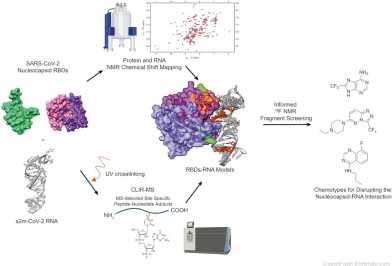
Screening by NMR in combination with a novel hybrid structure determination approach has been used assess the drugability to of the nucleocapsid N-protein of SARS-CoV-2.
NMR Seminar excursion to PSI

In the context of this semester's NMR Seminar on the topic of "integrated structural biology" we paid PSI a visit. We had two excellent guided tours to the X-FEL and the SLS.
Collaboration with the Zenobi-Wong group published
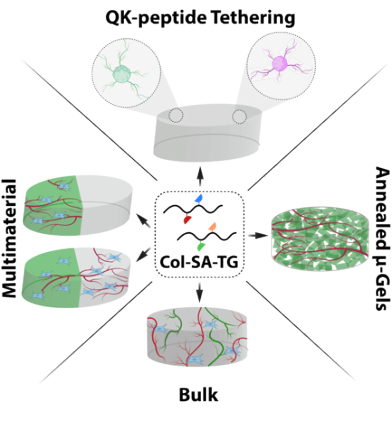
Adequate vascularization is required for the successful translation of many in vitro engineered tissues. This study presents a novel collagen derivative that harbors multiple recognition peptides for orthogonal enzymatic crosslinking based on sortase A and Factor XIII. Overall, this work demonstrates for the first time the co-engineering of mature micro- and meso-sized blood and lymphatic capillaries using a highly versatile collagen derivative.